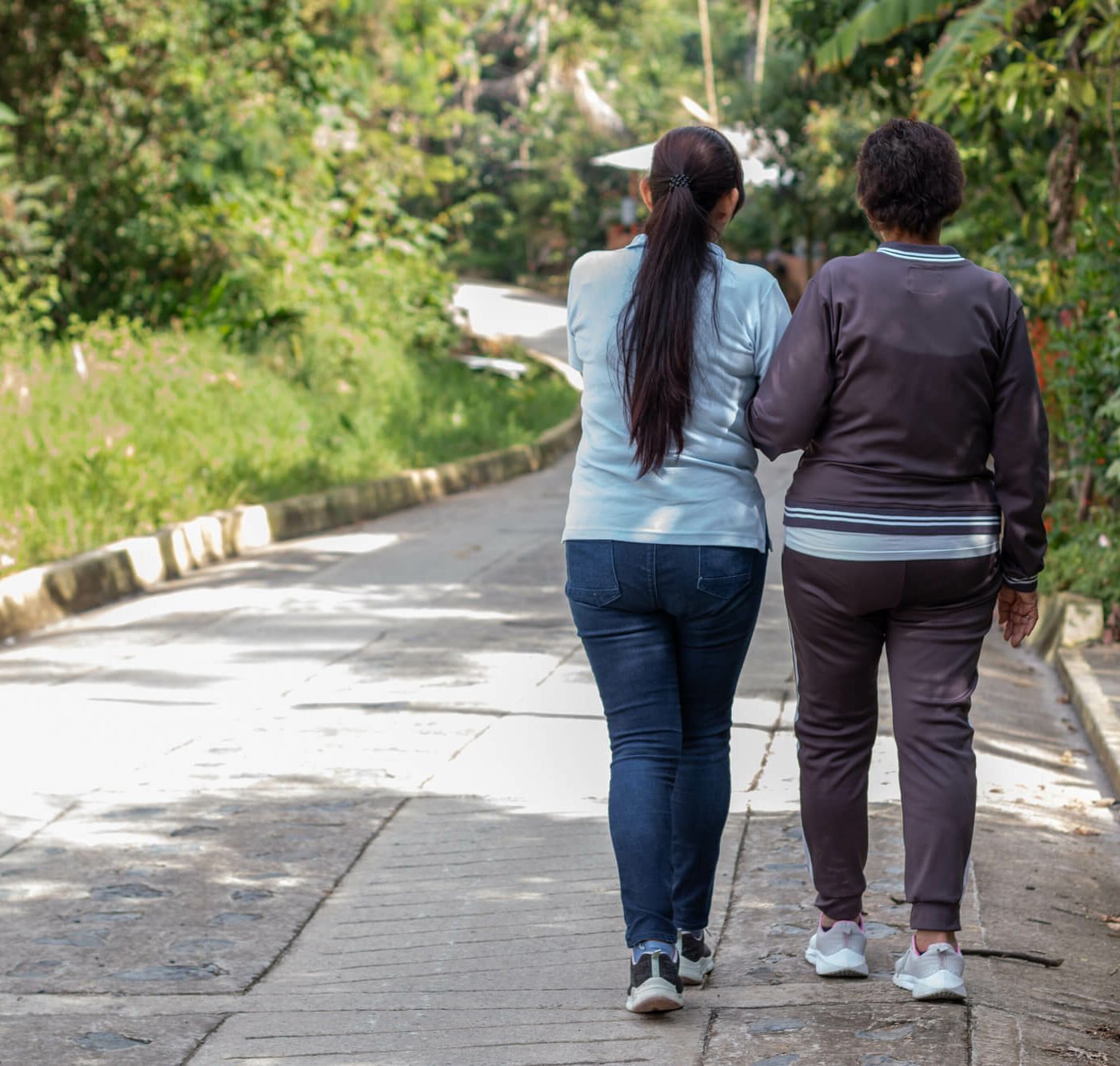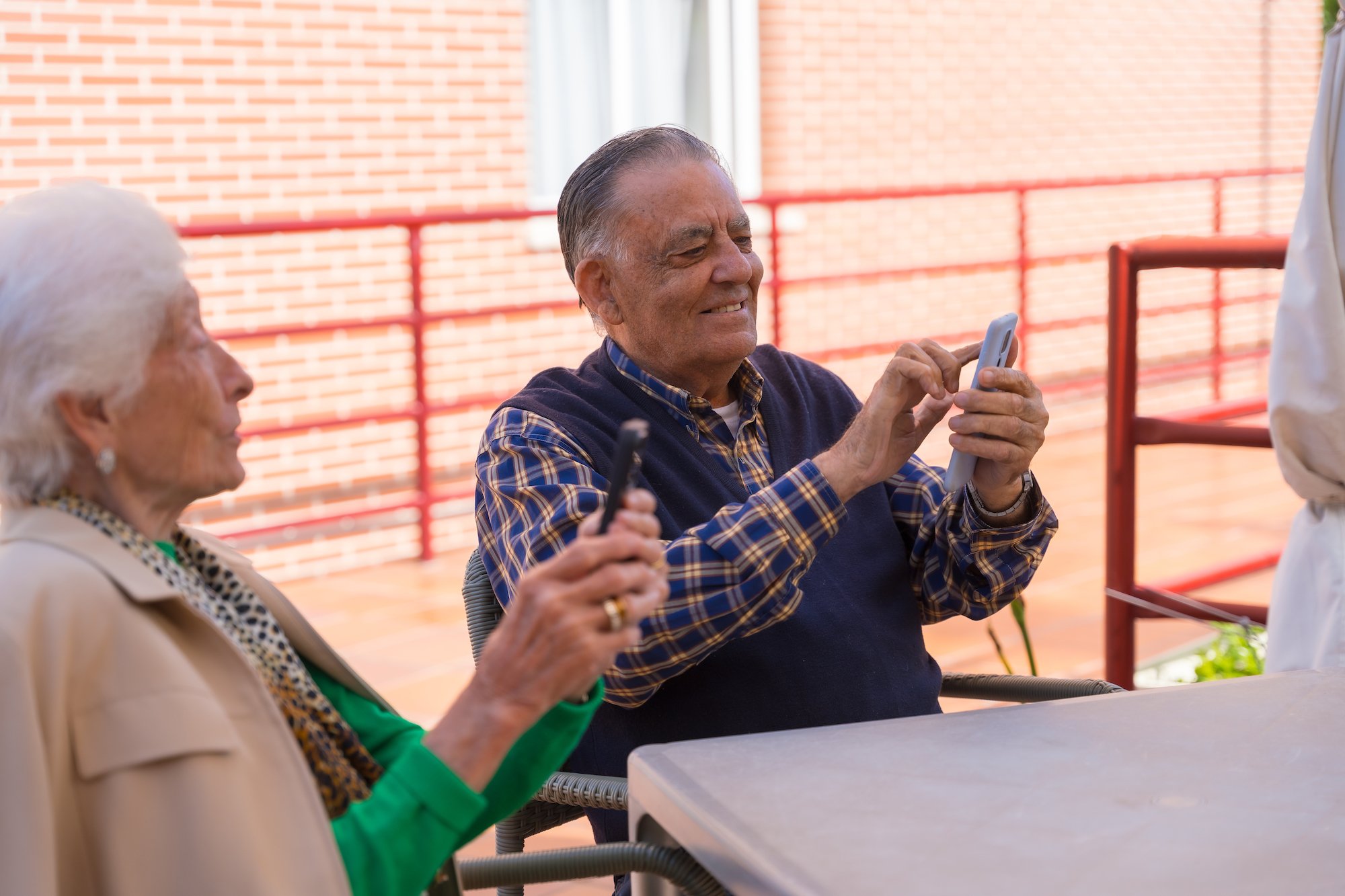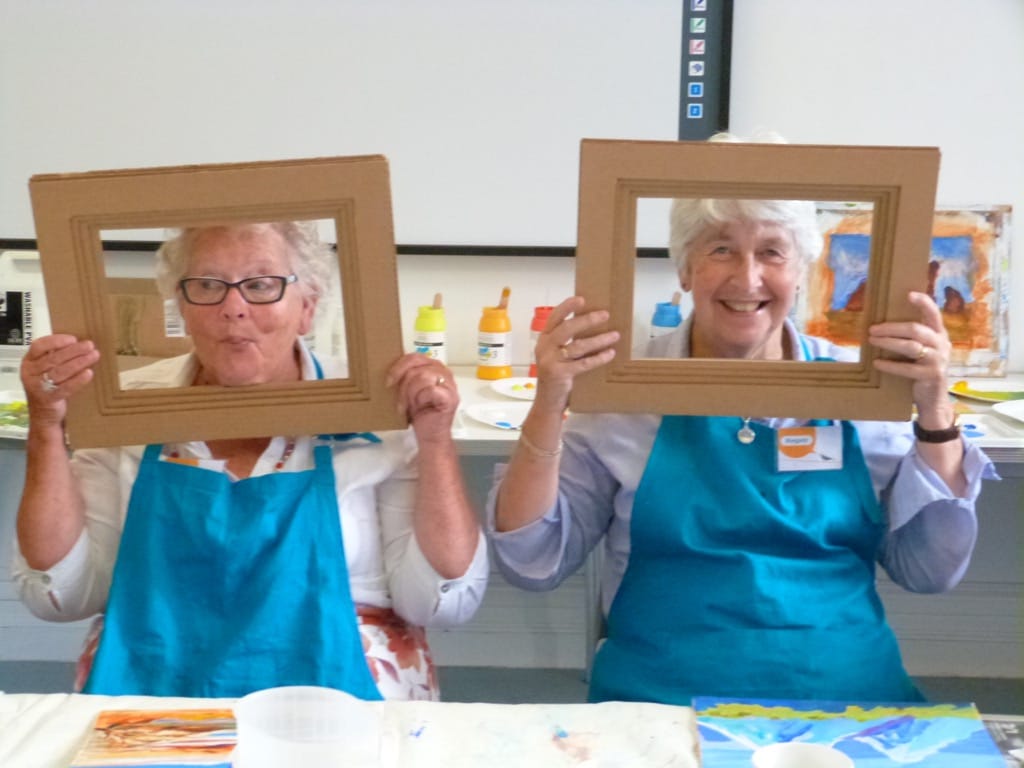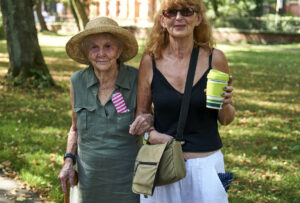Activities to do in later life
Tags
Living Well
With advancements in medical treatment we have an ageing population in a way that hasn’t been seen before. Finding new and interesting ways to spend these later years, outside of the traditional ‘elderly’ past-times isn’t always easy. Sometimes finding something that provides a good sense of purpose and meaning can feel like a bit of a trial and error process – but keeping busy and finding purpose is essential to growing old happy.
Countless activities, projects, and goals can be done in later lif, and can suit a wide range of abilities and interests. We’ve shared some ideas and resources in this article.
Importance of staying busy in later life
Staying busy has been found to help with cognition (how we think and process information) and improve the overall quality of life. Engaging in activities such as exercise, socialising, and volunteer work can have numerous health benefits too, outweighing the potential risks of a sedentary lifestyle, or spending too much time alone.
The NHS states that staying busy and active may reduce the risks of:
- Coronary heart disease and stroke
- Type 2 diabetes
- Depression
- Dementia
- Osteoarthritis
- Hip fractures
- Falls (among older adults)
Being active and busy not only improves your physical health but, as stated above, can help reduce depression and boost your overall mental well-being and mood.
Engaging in physical activity triggers the release of ‘feel-good’ hormones in the brain that improve focus, and enhance overall mood. Being active can also help tire us out – leading to better sleep at night too.
Additional mental health benefits of physical activity include:
- The reduction of tension, stress, and mental fatigue
- Having a natural increase in energy
- Feeling a sense of achievement
- Increased focus and motivation
- Feeling calmer or more composed
- Improved healthier appetite
How to stay busy after retirement
Retirement is a time of change. It can be exciting and overwhelming at the same time. With more free time, it’s important to make the most of it.
Acquire new skills
After retirement, you can stay busy by pursuing hobbies and social activities that bring joy and satisfaction. Some popular choices include gardening, woodworking, painting, photography, birdwatching, and cooking. You can also take advantage of classes offered by local colleges or online courses to learn new skills or improve existing ones, while websites like Restless offer various online courses to boost your current skills or learn completely new ones from the comfort of your own home.
Maintain physical fitness
Regular exercise benefits both the body and mental health. Staying fit and active doesn’t have to be done with an expensive gym membership, you can do so by engaging in physical activities like yoga, tai chi, or swimming at your local community leisure centre. Dog walking is also a great form of exercise, especially if you don’t like walking for exercise by yourself. You may wish to join a scheme like Borrow my Doggy, or enquire at your nearest rescue centre to set up an arrangement . Dog walking can also be a great way to socialise by meeting other dog walkers or joining dog walking groups.
Discover new experiences
If you can, consider taking trips during retirement. Exploring new places, experiencing different cultures, and trying new activities can contribute to personal growth and renewal. There are plenty of ways to book and enjoy accessible holidays across the UK and internationally, if required. Taking a break from the daily routine can open up possibilities for new experiences. Even a quick day trip can be a welcome change of scenery. Some companies offer over 60s coach trips, and special trips for solo older travellers.
Consider finding engaging in volunteer work.
Low-stress jobs or volunteering activities can be a beneficial way to stay active during retirement. Working part-time in an area of interest can help retirees stay engaged and connected to the community and provide extra income for leisure activities. Volunteering for a meaningful cause can also bring new purpose and structure to life. Some volunteering ideas include –
- Becoming a telephone friend via Reengage
- Getting involved in protecting a local park or community garden
- Sharing your local or historical knowledge by volunteering at a museum or library

How can I stay active when recovering from an injury or illness?
Trying new activities and pushing yourself with exercise can be intimidating, and dangerous if not done correctly and in-line with the advice of your medical team. However, doctors agree that exercise is crucial for healing and accelerating recovery, as it strengthens your heart, muscles, bones, and brain. Talk to your GP or hospital about a gentle, low-impact exercise routine that you’re both comfortable with. Address your fears and discuss your long-term healing and activity goals to motivate yourself. Remember, around 1 out of 3 seniors over 65 will experience a fall, increasing to 1 out of 2 seniors over 80. Research also shows that those who have fallen are almost three times more likely to fall again. Preventing falls isn’t just about assistive devices and grab bars – but improving physical abilities, such as balance, flexibility, and coordination through regular exercise, is also crucial.
Activities to keep older people engaged while at home
Arts and crafts activities offer a wide variety of creative opportunities for older people, ranging from painting and scrapbooking, to creating jewellery and homewares with polymer clay. These hands-on activities may enhance motor skills, promote concentration, and foster social connections if done with friends or as part of a community group. Some examples of arts and crafts activities include still-life painting, assembling photo albums, or making gifts for special occasions.
Birdwatching can be done anywhere, including from your own garden or kitchen window. Birdwatching promotes exploring nature and learning about new species. It has benefits like reducing stress and improving relaxation and mental well-being. It’s a hobby that can make a positive difference too – initiatives like the RSPBs Big Garden Bird Watch is the UK’s biggest wildlife survey and is free to take part in. They also offer a range of resources to help you support UK birds and attract new visitors to your garden.
Music and sounds play a significant role in our daily lives. A specific song can bring back memories and transport older individuals to important moments from their past. Studies have shown that music can improve moods, enhance memory, and promote positive emotions. It can also improve sleep quality and reduce stress levels. Why not try creating personalised playlists to suit different moods, sing your heart out to free karaoke versions of your favourite songs or join an online choir, or find like minded people through online communities.
Joining an online book club can be more than a reading group. Book clubs provide an excellent opportunity for older people to read several books they may not have otherwise discovered, keep cognition sharp, maintain and gain communication skills, learn about new perspectives, stay current on social events, socialise and make new friends.
If you’re looking for a group bookclubs.com if a good place to start.
Gardening is a great activity for older people to stay active if they can access a garden. It uses muscles from head to toe and can be low-impact. Gardening can boost vitamin D levels and improve mood by being outside. There are various ways to engage and join gardening communities online, to talk to and share gardening tips with fellow gardeners. If your or your loved one doesn’t have access to a garden, window boxes can be a good option for growing herbs and house plants. Gardening charity Thrive offer lots of great resources on gardening at home for all abilities, as well as a free fortnightly newsletter packed with inspiration.
Baking and cooking have several benefits for seniors, such as reducing stress, evoking positive emotions and memories, stimulating the brain by following recipes, measuring ingredients, and fostering creativity. Baking is not solely about creating delicious food but also about finding relaxation and peace.
Games and Jigsaw Puzzles are a good way to keep the brain active, improve memory, and benefit mental health. It can also help release stress and decrease boredom. Crossword puzzles are especially effective for keeping the mind sharp and staying knowledgeable.
Photography is an activity that can benefit older people, as it allows them to engage with the outdoors and discover new locations. They can tap into their creativity by capturing images and experimenting with various elements like lighting and backgrounds. Building a collection of photographs and sharing them with loved ones can bring a sense of fulfilment and joy, providing a sense of purpose.
All you need is a camera – and even cheaper options or mobile phone cameras can produce lovely photographs. If you’d like to sharpen your skills, there are a number of free courses and clubs to try too, some even offer members a chance to show their work at gallery events.
Learning new skills keeps the brain healthy and gives older adults a sense of achievement when they master a new ability. Why not learn sign language for example? Teaching yourself new skills provides a stimulating mental challenge, which is important in the battle against dementia and cognitive decline. Joining an online adult learning course to learn new skills is also a great way of stimulating the brain and socialising with new people.

Activities for older people with limited mobility
Reading is a great activity for older adults. It can be enjoyable and help keep the brain active. It has benefits such as improving memory, reducing stress, improving sleep, and delaying cognitive decline. Reading doesn’t only have to be done with physical books or magazines – reading can be done with an e-reader, or listened to audiobooks. They can engage in a well-told story, view photographs, or learn about new topics. Organising a book club with friends is another way for seniors to enjoy reading and socialising.
Explore various hobbies that involve minimal physical activity, such as cooking, baking, birdwatching, knitting, crocheting, indoor or container gardening, playing a musical instrument, or learning a language. This is also a good opportunity to learn something new – perhaps there are hobbies or interests they’ve yet to have the chance to explore before. Learning is an effective way to keep the mind active and prevent boredom.
Exercise: Even if an older adult has limited mobility, there are still exercises they can do. Gentle exercises, such as Seated exercises or chair yoga routines, can provide health and mood benefits. Using a walker for stability or focusing on the feet and ankles can also help reduce swelling.
Being creative, such as engaging in activities like drawing, colouring, painting, and sculpting. They can also enjoy projects such as making scrapbooks, organising family photo albums, or creating a family recipe book. In addition to being enjoyable, being creative can offer various benefits for their well-being. Research shows that creative activities can help individuals with chronic illnesses, reduce negative emotions, lower stress and anxiety, and improve medical outcomes.
Volunteering for charities can still be done by those with limited mobility, as there are many ways to help. It can help them stay engaged in their community and feel a sense of purpose. Contact local charities, hospitals, or religious organisations to ask about projects your older adult can help with. Volunteering matters has a Senior Volunteer Programme that enables people over 50 to participate in or lead volunteering activities that improve the health and well-being of others in their community.
Read more later life articles

12 summer safety tips for the elderly
It’s important for everyone to take care in hot weather – anyone can become unwell if they’re exposed to soaring temperatures. However, for older people

Live-in care vs other types of care
Live-in care vs other types of care Navigating elderly care options for a loved one is a significant decision. While care homes are a common

Defining Dignity in Later Life – Interview with Liz Lloyd
We talked to Liz Lloyd about personal and social perceptions of age, the challenges of identity, empowerment and choice.

The Challenges of Vegetarians and Vegans Living with Dementia
We talk to Amanda Woodvine about the challenges faced by older vegetarians and vegans receiving care. Read more here.

How much does live-in care cost?
How much does live-in care cost? Live-in care provides one-to-one support in the comfort of your loved one’s home, but how much does it cost?

How much does respite care cost?
Respite care offers short-term relief for primary carers, and the cost can vary widely depending on the type of care, location, and level of support